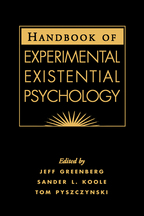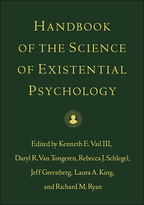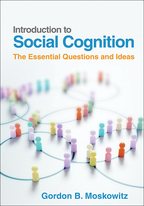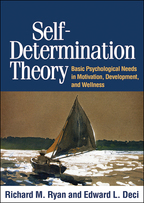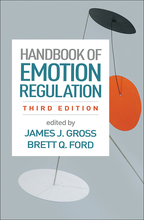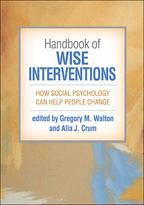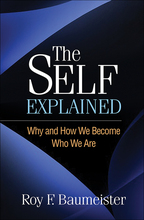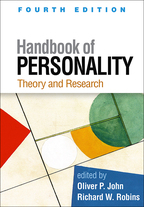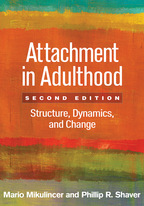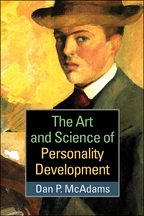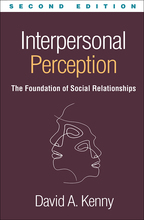Handbook of Experimental Existential Psychology
Edited by Jeff Greenberg, Sander L. Koole, and Tom Pyszczynski
Hardcovere-bookprint + e-book
Hardcover
orderMay 26, 2004
ISBN 9781593850401
Price: $109.00 528 Pages
Size: 7" x 10"
“This is a comprehensive and encyclopedic text surveying experimental findings and conceptual formulations in contemporary existential psychology. Chapters on a variety of subjects are provided by an impressive array of psychologists and social scientists....Provides a wealth of information and perspectives that will be of value to students of human nature in more than one psychologically related discipline.”

—Bulletin of the Menninger Clinic
“Handbooks are often about the past. They integrate what's known. The Handbook of Experimental Existential Psychology is about the future. It creates a new field that speaks to the fundamental question of how human beings confront the reality of their lives. It is original in placing 'experimental' next to 'existential.' Heidegger and Sartre will smile.”

—Mahzarin R. Banaji, PhD, Department of Psychology, Harvard University
“Like many other academics, I was drawn to psychology because I wanted to know more about the fundamental properties of existence—love, death, religion, pain, sex, morality, and the meaning of life. And, like others, I was soon lost in the details of far more circumscribed questions. This handbook reminds me why I love psychology. The authors dare to tackle some of the most basic questions about human existence, using sophisticated scientific methods and theories. The writing is crisp and the topics are bold and exciting. This is the finest edited book that I have seen in many, many years.”

—James W. Pennebaker, PhD, Department of Psychology, University of Texas at Austin
“How do ordinary people struggle with profound existential issues such as the certainty of death and the problem of finding meaning in life? Although extraordinarily important, psychologists historically have viewed such questions as too abstract or too difficult to address with the scientific method. In contrast, this volume shows that the marriage of experimental and existential psychology is not only possible, but immensely fruitful. The contributing authors—experts in social and personality psychology—address such core existential issues as people's attempts to manage terror about death, find meaning in life, search for love, and struggle for freedom, all in a scientifically rigorous and theoretically rich way. This handbook is a 'must read' for graduate students in psychology; scholars in sociology, anthropology, and other disciplines; and others concerned with issues of mortality and meaning. Kudos to Greenberg et al. for having the insight and courage to unite existential and experimental psychology.”

—Lyn Y. Abramson, PhD, Department of Psychology, University of Wisconsin-Madison
“Meaning, free will, and ultimate questions about life and death: such themes lie at the heart of what it means to be human. But is it possible to tap existential struggles without sacrificing methodological rigor? The answer provided by this book is a resounding 'Yes!'. Existential questions, many of which have creatively but quietly shaped the field of social psychology, come into bold relief in this theoretically rich and empirically solid volume. Anyone who fears that social psychology has lost 'the big picture' will find in this book a breath of fresh air and hope.”

—Julie Juola Exline, PhD, Department of Psychology, Case Western Reserve University
“This remarkably wide-ranging and informative collection of essays offers the best refutation yet of the common charge that, the more precise a psychology's research methods, the more trivial its findings are likely to be. Drawing on fundamental themes from clinic-derived existential psychology—authenticity, choice, awareness, meaning, anxiety, temporality, and death, among others—but largely setting aside its abstruse philosophical underpinnings, the authors demonstrate that rigorous empirical methods can take us far in illuminating the complex contours of the human condition. This book gathers together a scattered but surprisingly voluminous and coherent literature, providing a vade mecum for an emerging subject area that we can only hope will gain increasing attention among researchers in psychology and related fields. Psychologists of religion in particular will find it a gold mine, for in it are numerous links to work already underway and a multitude of leads for new research directions.”

—David M. Wulff, PhD, Department of Psychology, Wheaton College, Massachusetts
—Bulletin of the Menninger Clinic
“Handbooks are often about the past. They integrate what's known. The Handbook of Experimental Existential Psychology is about the future. It creates a new field that speaks to the fundamental question of how human beings confront the reality of their lives. It is original in placing 'experimental' next to 'existential.' Heidegger and Sartre will smile.”
—Mahzarin R. Banaji, PhD, Department of Psychology, Harvard University
“Like many other academics, I was drawn to psychology because I wanted to know more about the fundamental properties of existence—love, death, religion, pain, sex, morality, and the meaning of life. And, like others, I was soon lost in the details of far more circumscribed questions. This handbook reminds me why I love psychology. The authors dare to tackle some of the most basic questions about human existence, using sophisticated scientific methods and theories. The writing is crisp and the topics are bold and exciting. This is the finest edited book that I have seen in many, many years.”
—James W. Pennebaker, PhD, Department of Psychology, University of Texas at Austin
“How do ordinary people struggle with profound existential issues such as the certainty of death and the problem of finding meaning in life? Although extraordinarily important, psychologists historically have viewed such questions as too abstract or too difficult to address with the scientific method. In contrast, this volume shows that the marriage of experimental and existential psychology is not only possible, but immensely fruitful. The contributing authors—experts in social and personality psychology—address such core existential issues as people's attempts to manage terror about death, find meaning in life, search for love, and struggle for freedom, all in a scientifically rigorous and theoretically rich way. This handbook is a 'must read' for graduate students in psychology; scholars in sociology, anthropology, and other disciplines; and others concerned with issues of mortality and meaning. Kudos to Greenberg et al. for having the insight and courage to unite existential and experimental psychology.”
—Lyn Y. Abramson, PhD, Department of Psychology, University of Wisconsin-Madison
“Meaning, free will, and ultimate questions about life and death: such themes lie at the heart of what it means to be human. But is it possible to tap existential struggles without sacrificing methodological rigor? The answer provided by this book is a resounding 'Yes!'. Existential questions, many of which have creatively but quietly shaped the field of social psychology, come into bold relief in this theoretically rich and empirically solid volume. Anyone who fears that social psychology has lost 'the big picture' will find in this book a breath of fresh air and hope.”
—Julie Juola Exline, PhD, Department of Psychology, Case Western Reserve University
“This remarkably wide-ranging and informative collection of essays offers the best refutation yet of the common charge that, the more precise a psychology's research methods, the more trivial its findings are likely to be. Drawing on fundamental themes from clinic-derived existential psychology—authenticity, choice, awareness, meaning, anxiety, temporality, and death, among others—but largely setting aside its abstruse philosophical underpinnings, the authors demonstrate that rigorous empirical methods can take us far in illuminating the complex contours of the human condition. This book gathers together a scattered but surprisingly voluminous and coherent literature, providing a vade mecum for an emerging subject area that we can only hope will gain increasing attention among researchers in psychology and related fields. Psychologists of religion in particular will find it a gold mine, for in it are numerous links to work already underway and a multitude of leads for new research directions.”
—David M. Wulff, PhD, Department of Psychology, Wheaton College, Massachusetts

